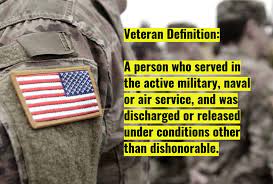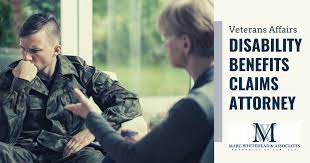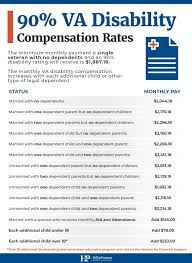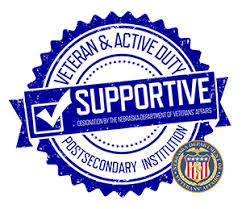Title: VA Disability Claims That Cannot Be Proven: Navigating the Challenges
Introduction:
Navigating the process of filing a disability claim with the Department of Veterans Affairs (VA) can be complex and time-consuming. One of the challenges veterans often face is when their disability claims cannot be easily proven. In such cases, it becomes crucial to understand how to approach these situations and maximize the chances of a successful claim.
Understanding Unprovable Claims:
Certain disabilities or health conditions may not have visible physical evidence, making it difficult to provide concrete proof. Examples include mental health conditions like post-traumatic stress disorder (PTSD), chronic pain without an identifiable cause, or illnesses related to exposure to toxic substances during military service.
Challenges Faced by Veterans:
Proving a disability that lacks objective evidence can pose significant challenges for veterans seeking compensation. The lack of visible symptoms or diagnostic tests can lead to skepticism from VA adjudicators, resulting in denials or reduced benefits. However, it is important to remember that just because a condition cannot be easily proven does not mean it is any less real or debilitating for the veteran.
Tips for Navigating Unprovable Claims:
- Seek Professional Assistance: Consulting with a knowledgeable veterans’ service officer or an accredited attorney specializing in VA disability claims can provide valuable guidance throughout the process. They can help gather supporting evidence and navigate complex legal requirements.
- Document Your Symptoms: Maintaining thorough documentation of your symptoms is crucial in building a strong case. Keep track of how your condition affects your daily life, work, relationships, and overall well-being. Include details about frequency, severity, and any treatment received.
- Obtain Medical Opinions: Obtaining opinions from medical professionals who are familiar with your condition is vital. Their expertise can help establish a connection between your military service and the claimed disability even if there is no definitive medical test available.
- Gather Supporting Evidence: Collect any supporting evidence that may indirectly validate your disability claim. This can include statements from fellow service members, family members, or friends who have witnessed the impact of your condition on your life.
- Utilize Lay Evidence: Lay evidence refers to statements provided by individuals without medical expertise but who can attest to the impact of your disability. This can include personal statements from yourself or those close to you, highlighting the changes in your behavior, mood, or physical abilities.
- Highlight Service Records: Emphasize any incidents or events during your military service that could have contributed to your condition. This can include combat exposure, accidents, or hazardous duty assignments.
Conclusion:
While proving a disability claim without concrete evidence is challenging, it is not impossible. By understanding the unique hurdles faced by veterans in these situations and employing effective strategies, it is possible to increase the chances of a successful outcome. Remember to seek professional assistance and gather as much supporting evidence as possible to strengthen your case. The VA’s primary goal is to support veterans, and with perseverance and preparation, you can navigate the complexities of unprovable claims and receive the benefits you deserve.
7 Essential Tips for Unverifiable VA Disability Claims
- Document everything
- Seek expert opinions
- Gather buddy statements
- Provide a personal statement
- Research similar cases
- Utilize lay evidence
- Seek legal assistance if needed
Document everything
When it comes to filing a VA disability claim that cannot be easily proven, one of the most crucial tips is to document everything. While your condition may not have visible physical evidence, thorough documentation can significantly strengthen your case.
By documenting your symptoms, their frequency, and severity, you provide tangible evidence of the impact your disability has on your daily life. Keep a record of how your condition affects your ability to work, engage in activities, maintain relationships, and enjoy life in general. Include details about any treatment received and its effectiveness.
Additionally, consider obtaining medical opinions from professionals familiar with your condition. Their expertise can help establish a connection between your military service and the claimed disability, even if there are no definitive medical tests available.
Don’t underestimate the power of supporting evidence. Collect statements from fellow service members, family members, or friends who have witnessed firsthand the impact of your condition on your life. Their accounts can provide valuable validation for your claim.
Remember that lay evidence can be just as important as medical evidence. Provide personal statements describing how your disability has affected you physically, emotionally, and mentally. Highlight any changes in behavior or abilities that have occurred since serving in the military.
Lastly, ensure you emphasize any incidents or events during your military service that could have contributed to or worsened your condition. Combat exposure, accidents, or hazardous duty assignments are all significant factors to include in supporting documentation.
By documenting everything related to your disability claim that cannot be easily proven, you provide a comprehensive picture of its impact on your life. This evidence demonstrates the validity and seriousness of your claim to the VA adjudicators reviewing it. Remember: thorough documentation can make all the difference in successfully receiving the benefits you deserve for serving our country.
Seek expert opinions
Seek Expert Opinions: A Valuable Tip for VA Disability Claims That Cannot Be Proven
When filing a disability claim with the Department of Veterans Affairs (VA), veterans often face the challenge of proving disabilities that lack visible evidence. In such cases, seeking expert opinions can be a valuable tip to increase the chances of a successful claim.
Expert opinions play a crucial role in establishing the connection between your military service and the claimed disability, even when there are no definitive medical tests available. Consulting with medical professionals who specialize in your specific condition can provide substantial support for your case.
These experts have in-depth knowledge and experience in diagnosing and treating various conditions, including those that lack visible symptoms. Their expertise lends credibility to your claim, as they can offer professional insights into the potential causes and effects of your disability.
When seeking expert opinions, it is essential to choose medical professionals who are familiar with both your condition and its potential links to military service. They should be able to provide detailed reports or statements that outline their professional assessment of your condition’s origin and its impact on your daily life.
These expert opinions can serve as persuasive evidence for VA adjudicators, helping them understand the severity and validity of your disability claim. They carry significant weight in demonstrating that even though there may not be concrete proof, your condition is indeed related to your military service.
To obtain expert opinions, consider reaching out to specialists within the VA healthcare system or private practitioners who have experience working with veterans. Veterans’ Service Organizations (VSOs) or accredited attorneys specializing in VA disability claims can also provide guidance on connecting with appropriate medical professionals.
Remember that seeking expert opinions is just one aspect of building a strong case for an unprovable disability claim. It is crucial to gather supporting documentation, maintain thorough records of symptoms, utilize lay evidence from witnesses who have observed the impact of your condition, and highlight relevant incidents during your military service.
By following this valuable tip and seeking expert opinions, you can strengthen your disability claim and increase the likelihood of a successful outcome. The expertise and professional insights provided by these medical professionals can make a significant difference in proving the validity of your claim.
Gather buddy statements
Title: The Power of Buddy Statements in Unprovable VA Disability Claims
Introduction:
When filing a disability claim with the Department of Veterans Affairs (VA), veterans often face challenges when their conditions cannot be easily proven. In such cases, gathering buddy statements can be a powerful tool in supporting your claim. These statements, provided by fellow service members who witnessed the impact of your disability, can provide valuable evidence to strengthen your case.
The Importance of Buddy Statements:
Buddy statements carry significant weight in VA disability claims, especially when objective evidence is lacking. They offer firsthand accounts from individuals who have observed the effects of your condition on your daily life, work, and overall well-being. These statements can help establish credibility and provide additional insight into the severity and impact of your disability.
How to Gather Buddy Statements:
- Identify Potential Witnesses: Reach out to fellow service members who served alongside you during the period when your disability occurred or worsened. Choose individuals who have personal knowledge of your condition and its effects on your life.
- Explain Your Situation: Clearly communicate the purpose of the buddy statement and how it can support your claim for VA benefits. Provide a brief overview of your condition and its impact. Request their assistance in providing an honest account based on their observations.
- Provide Guidance: Offer specific questions or prompts to guide witnesses while writing their statements. Encourage them to include details such as dates, locations, specific incidents, or changes they noticed in your behavior or physical abilities.
- Format and Documentation: Ensure that each buddy statement is signed, dated, and includes the witness’s contact information for verification purposes. It is also helpful to gather any supporting documentation that may further validate their statements.
- Multiple Perspectives: If possible, obtain buddy statements from multiple witnesses who can corroborate each other’s accounts. This strengthens the overall credibility and impact of these statements on your claim.
Conclusion:
When facing the challenge of proving a disability claim that lacks concrete evidence, buddy statements can be a valuable asset. These firsthand accounts from fellow service members provide crucial support and validation for your claim. By gathering well-documented and credible buddy statements, you can enhance the chances of a successful outcome in your VA disability claim. Remember, the collective voices of those who witnessed your condition can make a significant difference in demonstrating the true impact of your disability on your life.
Provide a personal statement
Title: The Power of a Personal Statement in Unprovable VA Disability Claims
Introduction:
When filing a disability claim with the Department of Veterans Affairs (VA), veterans often face the challenge of proving conditions that lack visible evidence. In such cases, providing a personal statement can be a powerful tool in supporting your claim and conveying the impact of your disability on your daily life. Let’s explore how a personal statement can make a difference in unprovable VA disability claims.
The Importance of Personal Statements:
A personal statement is an opportunity for you to share your unique perspective and experiences related to your claimed disability. While it may not provide concrete medical evidence, it allows you to describe how your condition affects your daily life, work, relationships, and overall well-being. Your personal statement offers an intimate glimpse into the challenges you face that may not be readily apparent to others.
Conveying the Impact:
In your personal statement, be sure to articulate the specific symptoms you experience and their severity. Describe how these symptoms hinder your ability to perform routine tasks or engage in activities that were once enjoyable. By providing this detailed account, you can help VA adjudicators understand the extent to which your disability affects your quality of life.
Authenticity and Clarity:
When crafting your personal statement, aim for authenticity and clarity. Share honest insights into how your condition has impacted you emotionally, physically, and socially. Be specific about any limitations or restrictions you have encountered due to the disability. By painting a vivid picture of your daily struggles, you can create empathy and understanding among those reviewing your claim.
Supporting Evidence:
While a personal statement alone may not suffice as definitive proof of a disability, it can serve as valuable supporting evidence when combined with other documentation. Include references to medical records, treatment history, or statements from healthcare professionals who have treated or evaluated you. This combination strengthens the credibility of your claim while highlighting the subjective nature of certain disabilities.
Seeking Assistance:
If you find it challenging to articulate your experiences or organize your thoughts, consider seeking assistance from a veterans’ service officer or an accredited attorney. These professionals can provide guidance in crafting a compelling personal statement that aligns with the requirements of the VA claims process.
Conclusion:
In unprovable VA disability claims, providing a personal statement can be a game-changer. It allows you to convey the unique impact of your disability on your daily life and helps VA adjudicators understand the challenges you face. By combining your personal statement with other supporting evidence, you can strengthen your claim and increase the chances of a successful outcome. Remember, your voice matters, and sharing your story can make all the difference in receiving the benefits you deserve.
Research similar cases
When faced with a VA disability claim that cannot be easily proven, one valuable tip is to research similar cases. By studying past cases with similar circumstances, veterans can gain insights into how others successfully navigated the claim process and gathered evidence to support their claims.
Researching similar cases serves multiple purposes. Firstly, it helps veterans understand the types of evidence that have been deemed persuasive in the past. By examining successful claims, veterans can identify patterns or commonalities in the supporting documentation that were crucial for a favorable outcome.
Secondly, researching similar cases can provide guidance on how to present and organize evidence effectively. It allows veterans to learn from others’ experiences and understand what information is most compelling to VA adjudicators when objective proof is lacking.
To conduct this research, veterans can explore various resources. They can consult with veterans’ service organizations or connect with online communities where fellow veterans share their experiences. These platforms often provide valuable insights and advice on handling unprovable disability claims.
Additionally, reviewing legal precedents and court decisions related to similar cases can offer further guidance. Legal opinions and rulings may shed light on specific arguments or strategies that have been successful in proving unprovable claims.
While each case is unique, researching similar cases empowers veterans by providing a wealth of knowledge and experience from those who have gone through similar situations. It helps them better understand the complexities of the process and equips them with valuable information to strengthen their own claims.
Remember, though, that researching similar cases should serve as a guide rather than a guarantee of success. Each claim is evaluated on its own merits, and individual circumstances may vary. Therefore, it remains vital for veterans to seek professional assistance from accredited attorneys or experienced veterans’ service officers who can provide personalized advice based on their specific situation.
In conclusion, researching similar cases offers invaluable insights for veterans facing unprovable disability claims. By learning from others’ experiences and understanding what evidence has been persuasive in the past, veterans can better prepare their own claims and increase their chances of a successful outcome.
Utilize lay evidence
Title: Utilize Lay Evidence: A Valuable Tool in Unprovable VA Disability Claims
Introduction:
When filing a disability claim with the Department of Veterans Affairs (VA), veterans often face the challenge of proving disabilities that lack concrete evidence. In such cases, utilizing lay evidence can be a powerful tool to support your claim. This article explores the importance of lay evidence and how it can strengthen your case when objective proof is not readily available.
Understanding Lay Evidence:
Lay evidence refers to statements and testimonies provided by individuals who do not possess medical expertise but can provide valuable insights into the impact of a veteran’s disability. This type of evidence focuses on personal observations and experiences, shedding light on the daily struggles and limitations faced by the veteran.
The Power of Personal Testimonies:
Lay evidence allows those close to the veteran, such as family members, friends, or colleagues, to share their observations about how the claimed disability affects their loved one’s life. Their testimonies can provide crucial context and detail that medical records may not capture.
How Lay Evidence Supports Your Claim:
Corroborating Symptoms: Loved ones who witness a veteran’s struggles can provide statements describing changes in behavior, mood, physical abilities, or overall quality of life. These accounts help establish a connection between military service and the claimed disability.
Daily Life Impact: Lay evidence can illustrate how a disability hinders a veteran’s ability to perform everyday tasks or maintain employment. Statements from family members or colleagues who have witnessed these limitations can strengthen your case.
Long-Term Effects: Loved ones who have known the veteran for an extended period can provide insight into any long-term effects resulting from military service or specific incidents during service.
Credibility Boost: Lay evidence adds credibility to your claim by showcasing multiple perspectives on how your disability affects you. This collective testimony enhances the overall strength of your case.
Gathering Effective Lay Evidence:
To utilize lay evidence effectively:
Choose Reliable Witnesses: Select individuals who have firsthand knowledge of your condition and its impact on your life.
Provide Clear Instructions: Explain to your witnesses what information is relevant to your claim, ensuring they understand how their statements can support you.
Written Statements: Encourage witnesses to provide written statements detailing their observations and experiences. These statements should be signed, dated, and include contact information for verification purposes.
Conclusion:
When objective proof is lacking in a VA disability claim, lay evidence becomes a crucial asset. The firsthand accounts of family members, friends, or colleagues can provide valuable insights into the impact of the claimed disability on a veteran’s life. By utilizing lay evidence effectively, you can strengthen your case and increase the chances of receiving the benefits you deserve. Remember to choose reliable witnesses and gather clear and detailed statements that highlight the daily struggles and limitations caused by your disability.
Seek legal assistance if needed
Seek Legal Assistance if Needed: A Crucial Tip for VA Disability Claims That Cannot Be Proven
When it comes to filing a VA disability claim that cannot be easily proven, seeking legal assistance can make a significant difference in the outcome of your case. While not every claim requires legal representation, having an experienced attorney by your side can provide invaluable guidance and support throughout the process.
Navigating the complexities of the VA system can be overwhelming, especially when your disability lacks visible evidence or objective tests. In such cases, a skilled attorney who specializes in VA disability claims can help you build a strong case and maximize your chances of success.
One of the key benefits of having legal representation is their knowledge of the intricate laws and regulations surrounding VA claims. They understand how to interpret medical records, gather supporting evidence, and present your case in the most compelling manner possible. Their expertise allows them to navigate through potential roadblocks and address any challenges that may arise during the process.
An attorney can also help you understand what constitutes relevant evidence for your specific condition. They will work closely with medical professionals to obtain opinions that establish a connection between your military service and the claimed disability, even if there are no definitive medical tests available. Additionally, they can assist in collecting lay evidence from witnesses who have observed the impact of your condition on your daily life.
Furthermore, engaging an attorney sends a powerful message to the VA that you are serious about pursuing your claim. It demonstrates that you have sought professional advice and are prepared to take all necessary steps to ensure fair consideration of your case.
It is important to note that not all veterans require legal representation for their claims. Some straightforward cases may be successfully navigated without legal assistance. However, if you find yourself facing challenges or struggling with unprovable claims, consulting with an attorney is highly recommended.
Remember, seeking legal assistance does not mean you are admitting defeat or lacking in credibility. On the contrary, it shows your determination to fight for the benefits you rightfully deserve. Veterans have sacrificed so much for our country, and having legal support ensures that their rights are protected and their voices are heard.
In conclusion, when dealing with VA disability claims that cannot be proven, seeking legal assistance is a crucial tip to consider. A skilled attorney can provide the knowledge, expertise, and advocacy needed to navigate the complexities of the VA system. With their support, you can increase your chances of a successful outcome and secure the benefits you deserve as a veteran who has served our nation with honor and dedication.




